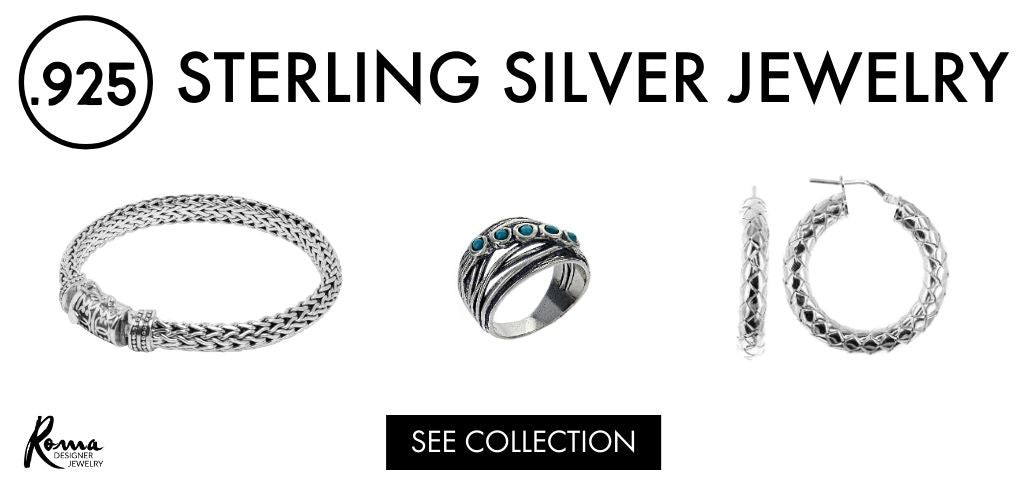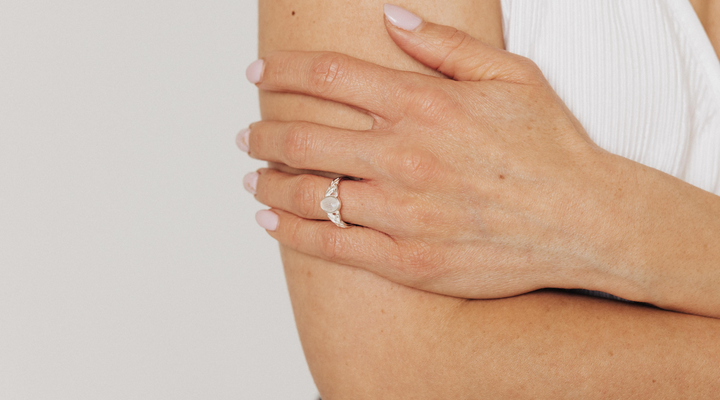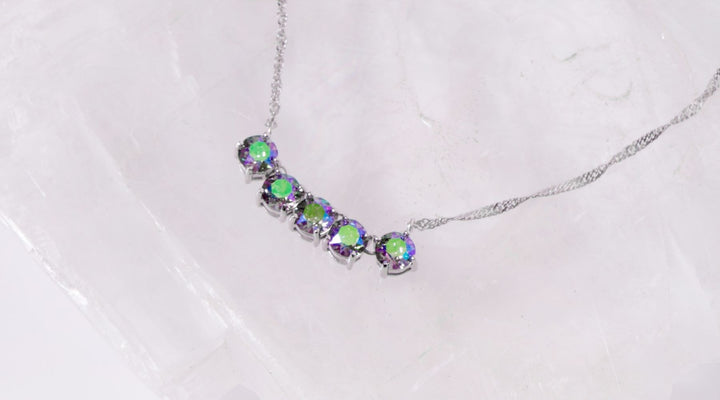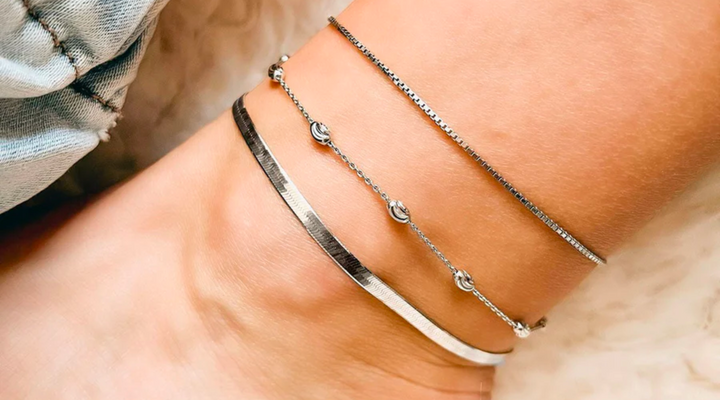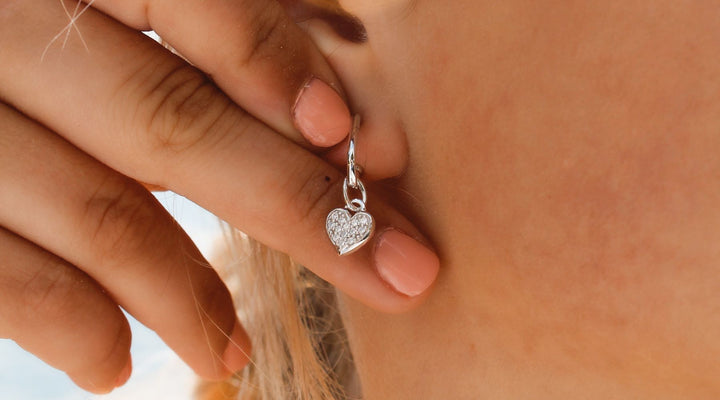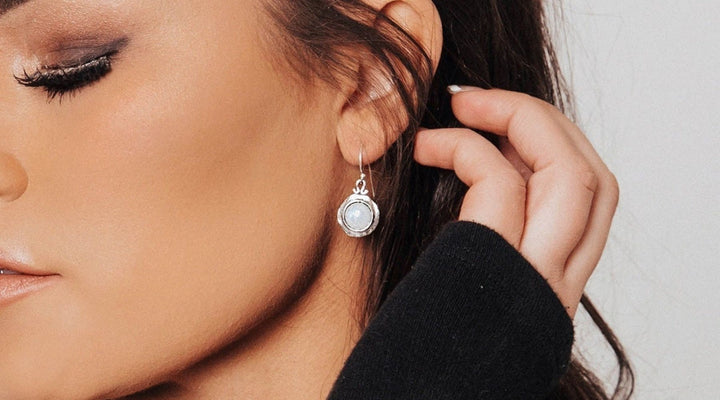Hypoallergenic Alchemy: How Is Hypoallergenic Jewelry Made?
Posted by Deven Davis on
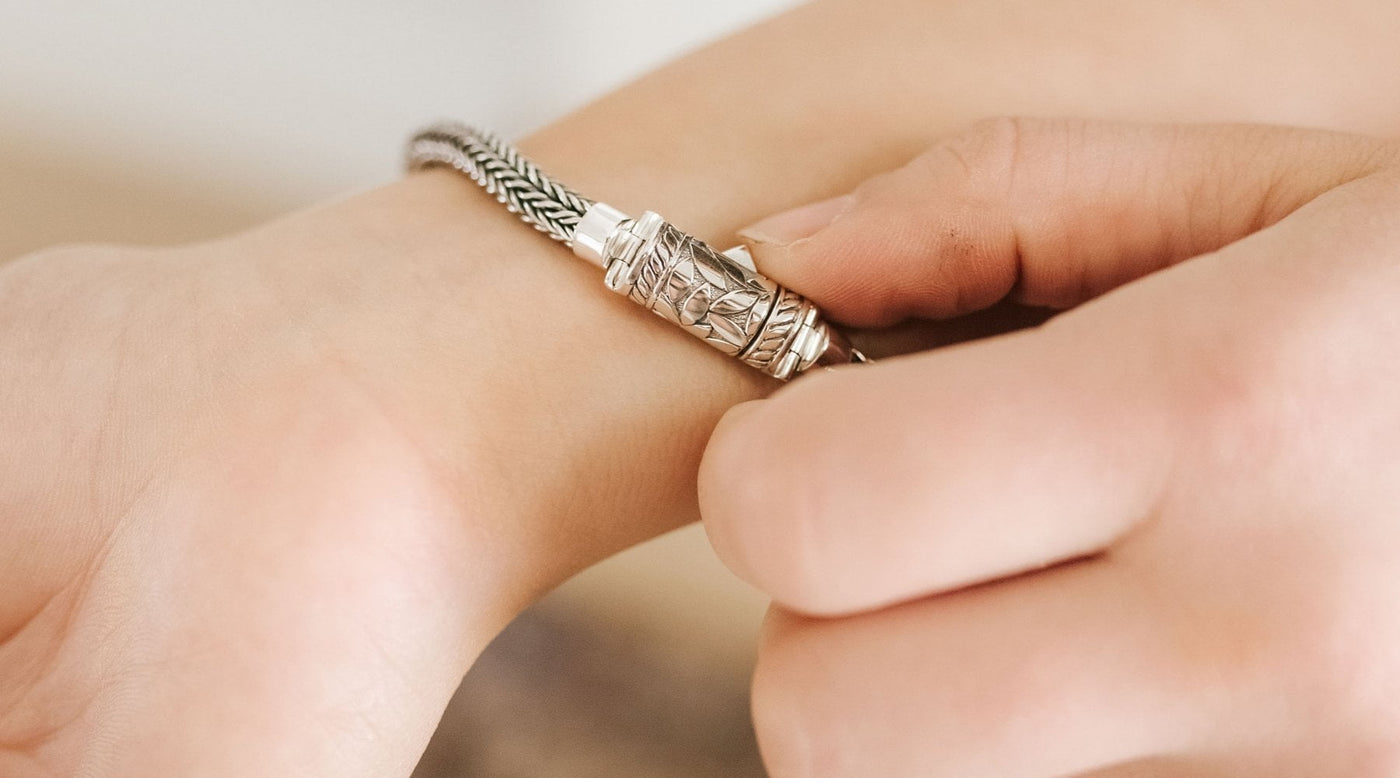
Hypoallergenic Alchemy: How Is Hypoallergenic Jewelry Made?
If your body is particularly sensitive to metals, you may want to consider buying hypoallergenic jewelry. How is this jewelry made, you ask? Find out here.
Keyword(s): hypoallergenic jewelry
If you have metal sensitivity, you've probably bought or considered buying hypoallergenic jewelry before--but do you know how this jewelry is made?
Scientists agree that a high percentage of the population has metal allergies. This can lead to a search for the right jewelry that won't irritate your skin, as you look for labels that say "hypoallergenic" on any metal item you buy.
Jewelers must choose the right materials to make jewelry that can be worn by anyone. In this guide, we'll show you how they do it, so you know what you're getting when you buy hypoallergenic jewelry. Keep reading to answer all your questions about allergy-safe metal jewelry!
What Causes Metal Allergies?
When you're hypersensitive to certain metals, it's actually an issue with your immune system. Basically, your immune system sees something that's not actually a threat--metal--as a threat to your body.
Your immune system is responsible for using tools like inflammation to get rid of dangers like viruses and bacteria. But sometimes, when metal touches your body, they'll attack that too. You might find yourself reacting to jewelry and watches, metal buckles on your clothes, or even coins and your cell phone.
There can also be traces of metals in your cosmetics and hygiene products, which might trigger surprising reactions. Many people are allergic to only certain kinds of metals--nickel is one of the most common.
If you have an autoimmune disorder already, you're more likely to also have a metal allergy. Since your immune system is naturally hyperactive, chances are good that it will also target certain kinds of metals.
How Can You Tell if You Have Metal Allergies?
Metal allergies usually manifest themselves as inflammation or other uncomfortable reactions to metal items that come into contact with your body.
You might see swelling or a rash in this area, or feel pain on the surface of your skin. This might be coupled with red or itchy skin. Sometimes, metal allergies are also linked to bigger and more serious conditions, like chronic fatigue syndrome or fibromyalgia.
Most of the time, you'll see the reaction in the part of your body that was touching metal. But sometimes, the immune response can also affect other body parts that are far from where your metal jewelry was, creating confusing symptoms.
If you have a metal implant in your body, like an IUD or artificial joint, this can cause more serious symptoms if you have a metal allergy. Having it implanted in your body for a long period of time can create a big immune system response if your body sees that metal as threatening.
How is Hypoallergenic Jewelry Made?
"Hypo" means below, so hypoallergenic means below allergenic. The jewelry might contain some allergens, but not enough to cause a reaction in most people with allergies. To be named hypoallergenic, jewelry has to contain few or no possible irritants.
To make hypoallergenic jewelry, jewelers simply use metals that won't cause allergic reactions. Next, let's take a look at the metals they can choose from.
Types of Hypoallergenic Metals
If you need jewelry that won't irritate your skin, look for these metals.
Platinum
Platinum has become a popular recent choice for jewelry, in part because it's one of the best hypoallergenic metals.
It does cost more than many materials, but almost never triggers allergic reactions in the wearer, and also is resistant to tarnishing. And since it's incredibly durable, this type of investment piece is something you can wear for years to come.
Stainless Steel
Although it's less glamorous than platinum, stainless steel is also a good choice if you want jewelry that won't trigger a reaction. It's also very strong and tarnish-resistant, so jewelry made with a stainless steel base will last a long time.
Stainless steel is made with a small amount of nickel, a possible allergen. However, the amount is usually low enough that even people with nickel allergies can wear it. There will be a different nickel content depending on the grade of the stainless steel, so jewelers making hypoallergenic jewelry will choose a grade with less nickel.
Aluminum
Aluminum isn't a very common jewelry choice, but it's used in some items--the soft metal is great for stamped designs, for example. It contains no nickel or lead, making it unlikely to trigger a reaction on your skin.
Gold
Gold is another one of the more traditional options for hypoallergenic jewelry. The higher the karats, the purer the gold, making it even less likely to cause a reaction.
That said, pure gold is generally too soft to make jewelry out of. Most gold jewelry has at least some other metals in it to make it harder. Sometimes, the mix can involve allergens like nickel. But jewelers making hypoallergenic items will take steps to minimize those allergens. High-quality gold jewelry that is mostly pure generally won't cause a reaction, even if there are traces of nickel in it.
Niobium
If you haven't heard of this metal, that's because jewelers have just recently started to use it in jewelry. However, it's one of the best choices for anyone with sensitive skin, since it appears to cause no reaction whatsoever even in the most sensitive wearers.
Is Sterling Silver Hypoallergenic?
Genuine sterling silver jewelry from reputable sources is hypoallergenic, but make sure you look for a stamp of authenticity. Sterling silver always includes some other metals but is mostly made of silver, so it shouldn't trigger any reaction. For uber-sensitive skin, look for sterling silver finished in rhodium (platinum family) for even more protection.
Is Hypoallergenic Jewelry Right for You?
Are you considering buying hypoallergenic jewelry?
A large percentage of the population has no metal allergies and will never need to buy hypoallergenic jewelry. However, if you have a metal allergy, you'll probably quickly realize it when you put on jewelry that contains allergens. We recommend a 925 sterling silver chain to begin with. Luckily, many jewelers make jewelry with these issues in mind.
Looking for a good jeweler to buy hypoallergic items from? Check out our guide to finding reputable jewelers.
